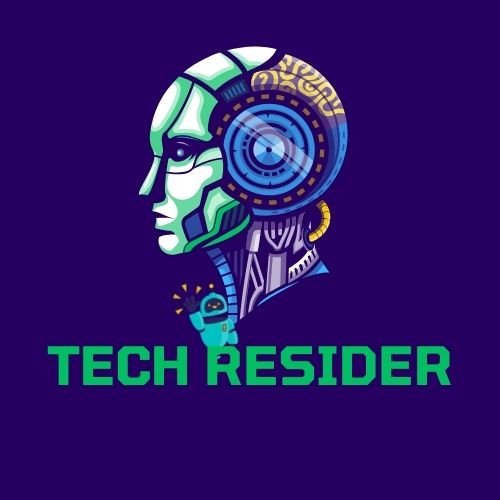AI or Artificial Intelligence is one of the most talked-about technologies of the 21st century. The advent of this technology has revolutionized the manner in which we conduct our lives, jobs, and interactions. AI is already being used in many industries, including healthcare, finance, education, and transportation, to name a few. But what about in our daily lives? What are the examples of AI you’re using in your daily life in 2023? This article will explore some of the most common examples of AI in our daily lives.
AI technology has advanced rapidly in recent years, and we can see its effects all around us. From the voice assistants on our smartphones to the personalized recommendations on our streaming services, AI has become an integral part of our daily routines. In 2023, we will undoubtedly see even more examples of AI in our lives. Let’s take a closer look at some of them.
Examples of AI You’re Using in Daily Life in 2023
Voice Assistants
Voice assistants such as Siri, Alexa, and Google Assistant have become ubiquitous in our lives. By 2023, the capabilities of voice assistants will further enhance, enabling them to comprehend and react to intricate directives.
Personalized suggestions derived from AI-based recommendation systems are employed by several well-known digital platforms, such as Netflix, Amazon, and Spotify.
Popular online services like Netflix, Amazon, and Spotify leverage AI-powered recommendation engines to offer personalized suggestions. These engines analyze our behavior and preferences to recommend products and services that we’re likely to be interested in.
Autonomous Vehicles
Self-driving cars are set to become more common on our roads in 2023.In 2023, our streets will be populated with automobiles that are outfitted with cutting-edge sensors and AI algorithms, empowering them to traverse thoroughfares and manage congestion without any human intervention.
Smart Homes
Smart homes are becoming increasingly popular, and in 2023, we can expect them to become even more intelligent. AI-powered devices such as smart thermostats, lighting systems, and security cameras can learn our behavior and preferences to make our homes more comfortable and secure.
Chatbots
AI-powered chatbots are used by many businesses to provide customer service and support. In 2023, we can expect chatbots to become even more sophisticated, using natural language processing to understand and respond to customer queries.
Healthcare
The integration of AI technology is already being implemented in the healthcare industry to enhance the accuracy of diagnoses and treatment procedures. In 2023, we can expect to see more AI-powered devices and software that can help doctors and nurses provide better care to their patients.
Virtual Assistants
Virtual assistants are becoming more common in our workplaces. In 2023, we can expect to see more AI-powered virtual assistants that can help us manage our work schedules, emails, and other tasks.
Financial Services
AI is already being used by financial institutions to detect fraud, automate trading, and improve customer service. In 2023, we can expect to see more AI-powered financial products and services that can help us manage our money more effectively.
Education
AI-powered education tools are being developed to personalize learning and improve student outcomes. In 2023, we can expect to see more AI-powered educational products and services that can help students learn more effectively.
Gaming
AI is being used in the gaming industry to create more immersive and challenging games. In 2023, we can expect to see more AI-powered games that can learn from our behavior to provide a more personalized gaming experience.
FAQs
Q1. Is AI replacing human workers?
A1. AI has been developed to enhance human abilities, rather than substitute them. In many industries, AI is being used to automate repetitive tasks, freeing up human workers to focus on more complex and creative tasks.
Q2. Is AI safe?
A2. AI can be safe as long as it is developed and used responsibly. Like any technology, AI can be used for good or bad purposes. It is up to the developers and users to ensure that AI is developed and used ethically and with safety in mind.
Q3. How does AI affect privacy?
A3. AI relies on vast amounts of data to learn and make decisions. This data can include personal information, such as our search history, location, and preferences. It is important for companies and governments to ensure that this data is collected, stored, and used responsibly to protect individual privacy.
Q4. How can I protect myself from AI biases?
A4. AI can be biased if it is trained on biased data or if the algorithms are designed with certain biases. To protect yourself from AI biases, be aware of the biases that may exist in the data and algorithms used by AI systems. You can also advocate for the development of AI that is fair and unbiased.
Q5. Will AI take over the world?
A5. No, this is a common misconception about AI. AI is designed to serve humans and make our lives easier, not to take over the world. As long as AI is developed and used ethically and responsibly, there is no reason to fear that it will take over the world.
Q6. How can I learn more about AI?
A6. There are many resources available online to learn more about AI, including online courses, tutorials, and articles. You can also attend workshops and conferences on AI to learn from experts in the field.
AI is already a part of our daily lives, and in 2023, we can expect to see even more examples of AI in our homes, workplaces, and communities. From voice assistants to autonomous vehicles, AI has the potential to make our lives easier, more convenient, and more efficient. However, it is important to ensure that AI is developed and used responsibly, with safety, privacy, and fairness in mind.
